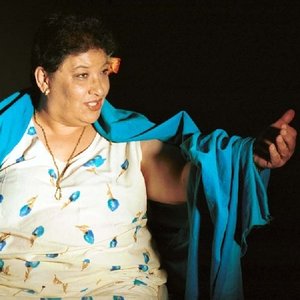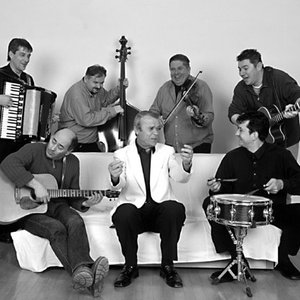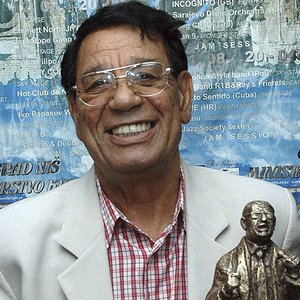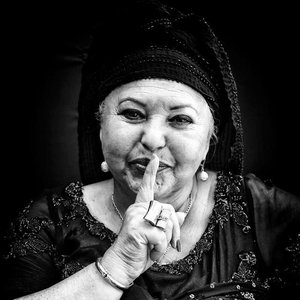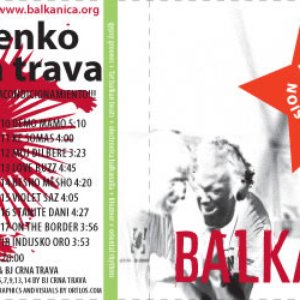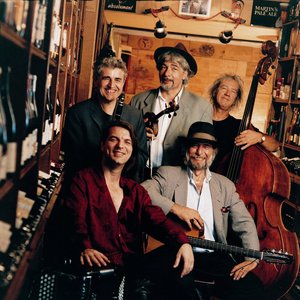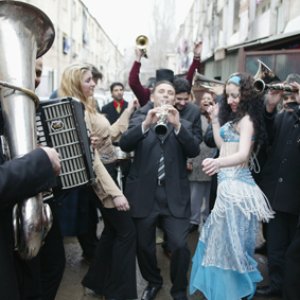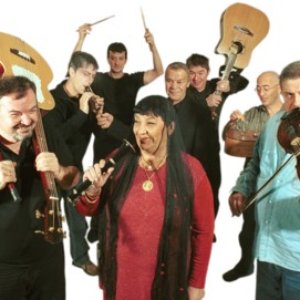Biography
-
Born
14 December 1944
-
Born In
Beograd, Serbia
-
Died
26 April 2010 (aged 65)
LJILJANA BUTTLER was born in Belgrade, her father was an accordion virtuoso and her mother a Croatian singer. But her father left soon after she was born and her mother had to support herself and her child, singing in bars. They settled in Bijeljina, a small town in Bosnia, but one night her mother fell ill and Ljiljana went to the café and said “My mother can’t come tonight, she’s sick. Please let me sing.” She was only 12 but had learned at her mother’s side. A year later her mother left and Ljiljana was on her own – she continued singing in cafes to support herself through school. Then she headed for Belgrade. “I started singing in bars in Skadalia (the famous restaurant quarter, a sort of Balkan Montmartre)”, she remembers. “The atmosphere was fantastic. The people laughed and cried during the music. That always inspired me – that and strong slivovice (plum brandy), lots of sad loves and lots of emotion and romance. Sometimes we made recordings for Radio Belgrade. They simply came to the cafes, listened to the music and if they liked it, asked the musicians back to the radio to record”.
From 1980 Ljiljana started doing concerts and became well-known on TV until the political and musical mood started changing with so-called turbo-folk providing the soundtrack for the Milosevic era. “Even before the war, I realised that somehow the joy had vanished and the Balkan men were no longer interested in love stories. Suddenly it became important to wear a short skirt and flash your cleavage. The shorter the skirt, the better singer you were thought to be. I realised my time was over. It was a time for weapons and hatred. It affected me terribly and the war that followed has left scars that will last forever.”
In Mostar, they are attempting to heal one of those scars. The bridge is being rebuilt. Whether it can ever be the same as it was, who knows? But Mostar Sevdah Reunion, the group that symbolises the artistic and the ethnic values of Bosnia more than any other, is intending to celebrate it. When it re-opens next year, Ljiljana is keen to be a part of it: “We have survived this dreadful war and good songs endure. What I can see in Mostar now is an enduring humanity and while it’s there, it’s possible to make music. There’s an old Serbian Gypsy song which says “There’s a song in the soul of every Gypsy as long as they’re alive.” Well, that’s how it is with me.” (courtesy of Simon Broughton, Songlines 2002)
In 1987 she vanished from the Balkan music scene in which she played such a dominant role, leaving music lovers wondering about her mysterious disappearance. In 2002 she decided to return to her homeland and record a new album on the Connecting Cultures label. Her vocal abilities on “Mother of Gypsy Soul” lead us to the depths of Gypsy and Balkan soul. At the age of 58 she sings better then ever; what she is presenting to us now is a pure handbook of Balkan Blues. The astonishing reappearance of this lost legend is something to be more than grateful for.
Her performance on the album shows why, in the former Yugoslavia, she was referred to as the 'Gypsy Ella Fitzgerald' and the 'Billie Holiday of Gypsy Music', but mostly she was called lovingly the 'Mother of Gypsy Soul'.
On this recording, the highly acclaimed Serbian Gypsy trumpet player Boban Markovic performed as a special guest joining Ilijaz Delic on vocals; Mustafa Šantić on vocals, accordion and clarinet; Nedjo Kovačević on vocals and violin; Mišo Petrović on solo guitar; Sandi Duraković on rhythm guitar; Kosta Latinović on double bass and Senad Trnovac on drums. This is known as Mostar Sevdah Reunion, one of the most famous Balkan bands from Bosnia/Herzegovina.
Mostar Sevdah Reunion have already put itself on the map of World Music with two outstanding recordings - one with Bosnian Sevdah songs and another with the most famous Gypsy singer in the world, Šaban Bajarmović, a Gypsy legend. Sevdah is a traditional style of Bosnian music that goes back some 300 years or more. The name, from Arabic, means love, desire or ecstasy. “Mostar is sevdah – the greatest poets of sevdah were born in Mostar,” says Dragi Šestić (the band’s producer) “it is deep within our town”.
In 2000, Mostar Sevdah Reunion performed at the Amsterdam Roots Festival and Belgium’s Sfinks Festival and in 2001 in Stimmen-Lorach, Germany and the famous Nice Jazz Festival. On that special evening entitled "Blues Around The World - B.B. King and Friends", Mostar Sevdah Reunion brought the Balkan Blues to the roots of American Blues in front of 50,000 people. With lead vocalist Ilijaz Delic and remarkable instrumentalists Mustafa Šantić on accordion and clarinet, Nedjo Kovačević on violin and guitar virtuoso Mišo Petrović they performed alongside some of the greatest Blues artists: B.B.King, Van Morrison, Dr. John, Bill Wyman, Keb Mo, Marva Wright.
In 2002, Mostar Sevdah Reunion brought their special programme to the Queen Elizabeth Hall, London, the Concertgebouw, Amsterdam and the Gayle Concerthus, Sweden – standing ovations followed each performance.
Artist descriptions on Last.fm are editable by everyone. Feel free to contribute!
All user-contributed text on this page is available under the Creative Commons Attribution-ShareAlike License; additional terms may apply.

